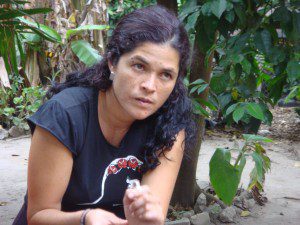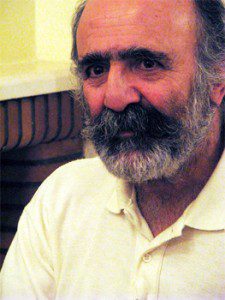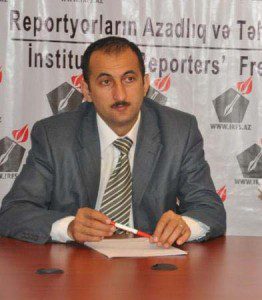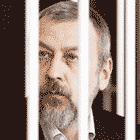Index relies entirely on the support of donors and readers to do its work.
Help us keep amplifying censored voices today.
 The author of China’s most widely read blog, 29-year-old Han Han has been called “the world’s most popular blogger”. He is also famed for being a cultural critic, race-car driver, actor and novelist. But despite his rock star status he has long been considered a thorn in the side of the Chinese government.
The author of China’s most widely read blog, 29-year-old Han Han has been called “the world’s most popular blogger”. He is also famed for being a cultural critic, race-car driver, actor and novelist. But despite his rock star status he has long been considered a thorn in the side of the Chinese government.
Though he has avoided ideological allegiances, Han Han recently sparked controversy with his essays, “On Democracy”, “On Revolution” and “Wanting Freedom”, which questioned where democracy really equals freedom and whether China will ever be capable of genuine reform.
Han Han has talked about suffering censorship: “Each time I do finish writing something and then can’t see it [after I post it, because it has been censored], I get despondent. And there are just so many government departments [to get past]. Even if the propaganda department and the General Administration of Press and Publications are fine with something, any department issued can wipe your essay away with a simple phone call.”
 Lucía Escobar’s story highlights the state of press freedom in Guatemala, where journalists are regularly intimidated by paramilitary groups. Escobar is a freelance columnist for El Periódico, a publication based in Guatemala City, and also operates an online radio station, Radio Ati.
Lucía Escobar’s story highlights the state of press freedom in Guatemala, where journalists are regularly intimidated by paramilitary groups. Escobar is a freelance columnist for El Periódico, a publication based in Guatemala City, and also operates an online radio station, Radio Ati.
On 19 October 2011, Escobar published a column alleging that a local mayor had turned a citizens’ group into a death squad that was socially cleansing “undesirables”, such as beggars and homeless people, and committed crimes including lynchings, torture, beatings and a kidnapping. In her column, Escobar blamed local government figures for being indifferent to the group’s activities.
Subsequent death threats forced Escobar to flee her home with her family and she has said she will remain in exile until the situation improves. No action has been taken by Guatemalan authorities, pointing to a worrying trend in Central America where those in power ignore attacks on journalists.
 Iranian journalist Kayvan Samimi has been instrumental in keeping dissent alive in the Islamic Republic.
Iranian journalist Kayvan Samimi has been instrumental in keeping dissent alive in the Islamic Republic.
Despite being imprisoned since 2009, Samimi has played a significant role in highlighting the attacks against those who attempt criticise the Iranian administration. In May 2011 Samimi co-authored a letter condemning the Iranian administration for its treatment of prisoners. The letter recorded the methods of torture used against the signatories.
He is serving a six-year prison sentence on charges of “propagating against the regime” and “assembly and collusion to disrupt national security” and has been banned from “political, social, and cultural activities” for 15 years, having been detained in the immediate aftermath of the 2009 presidential election.
 Idrak Abbasov is an Azerbaijani journalist whose investigative work has put his life in danger. Abbasov reports for newspaper Ayna-Zerkalo, contributes to the Institute for War & Peace Reporting website, and he is one of the founding members of Azerbaijan’s Institute for Reporters’ Freedom and Safety (IRFS) .
Idrak Abbasov is an Azerbaijani journalist whose investigative work has put his life in danger. Abbasov reports for newspaper Ayna-Zerkalo, contributes to the Institute for War & Peace Reporting website, and he is one of the founding members of Azerbaijan’s Institute for Reporters’ Freedom and Safety (IRFS) .
On 9 September 2011, after Abbasov investigated the activities of a local oil company, the State Oil Company of Azerbaijan (SOCAR) sent bulldozers to his family’s home. SOCAR claimed ownership of the site as part of a project to develop local oil resources with Global Energy Azerbaijan Ltd. His parents and brother were hospitalised after being attacked by the company’s security service during the incident.
It is believed that bulldozers targeted the journalist’s home because of his work monitoring human rights. The violence, threats and harassment of Abbasov and his family continued when his parents were again attacked at their home. One assailant reportedly said: “Tell Idrak to get smarter, or we will cut off his ears.”
 States urged to heighten sanctions against Europe’s last dictator as opposition leader tells of fears. Michael Harris reports
States urged to heighten sanctions against Europe’s last dictator as opposition leader tells of fears. Michael Harris reports
(more…)
A unique performance evening to mark the 30th annual Day of the Imprisoned Writer, in association with ice&fire theatre company.
Hello Mr Miller, Hello Mr Pinter
Don’t miss your chance to see this special one-off performance in which the powerful words of persecuted writers from Mexico to Bahrain, from Kenya to Azerbaijan, have been woven together by award-winning playwright Sonja Linden and English PEN’s Cat Lucas. Directed by Christine Bacon and performed by Actors for Human Rights, ‘Hello…’ is both a moving celebration of PEN’s work on behalf of imprisoned and persecuted writers around the world and a concrete testament to the bravery of those writers who, often at great risk to themselves and their families, continue to speak out.
Stand Up For Writers In Prison
And because no-one speaks out quite like a comic, we’re delighted to be bringing you some of today’s finest acts to illustrate what freedom of speech is all about……
How to book
Tickets are £10 and all proceeds will go directly to English PEN’s Writers in Prison Programme.
To book, please click here: http://www.carnivalvillage.org.uk/all-events/night-of-the-imprisoned-writer/
English PEN’s Writers in Prison Programme would like to thank Richard and Elena Bridges for their invaluable support.
The European Court of Human Rights will this month examine complaints against Azerbaijan filed by bloggers Emin Milli and Adnan Hajizade. The pair claim that their detention from July 2009 to November 2010 and subsequent conviction violated articles of the European Convention on Human Rights.
Reporters Without Borders explains:
The complaint filed by Milli and Hajizade says that Article 6, on the right to a fair trial, was violated because they were allowed only belated access to their lawyers and because they court took no account of what their lawyers said.
Article 8 on respect for private and family life was violated, according to the complaint, because the two bloggers were denied family visits while held and certain family members were not allowed to testify at the trial.
Article 10 protects the right to freedom of expression, including the “freedom to hold opinions and to receive and impart information and ideas without interference by public authority and regardless of frontiers.”
The two prominent youth activists were arrested in July 2009 on charges of “hooliganism” and “inflicting minor bodily harm”, after a fight in a restaurant in downtown Baku. Reports and eyewitness accounts have said the pair were talking among a group of other civil society figures when they were severely beaten by two sportsmen, who it has been alleged were government-orchestrated provocateurs. After Milli and Hajizade filed a complaint with police, they were arrested, although their assailants were let go, raising suspicions that the duo’s attack and arrest were linked to their activism.
In November of the same year, having both been held in prison for over four months, the pair were sentenced. Hajizade received a two-year sentence and Milli two-and-a-half years. They were released a year later, although their convictions have not been overturned. The Presidency of the European Union, Parliamentary Assembly of the Council of Europe (PACE), Organisation for Security and Cooperation in Europe (OSCE) and various rights groups all condemned the verdict.
Both bloggers had been prolific in using social media platforms such as YouTube, Facebook, and Twitter to mobilise Azerbaijani youth mobilise opposition against the government, speaking out against high-level corruption, misuse of oil revenues and censorship.
Prior to their arrest, the pair had earned their title “Donkey Bloggers” by posting a video satirising the country’s government for having spent a large amount of state money importing two donkeys from Germany. Rights groups had suspected the video was a key trigger in the bloggers’ arrest.
Last year Index on Censorship together with ARTICLE 19, Media Diversity Institute, and Open Society Foundations, produced a report on free expression in Azerbajan: Free Expression Under Attack